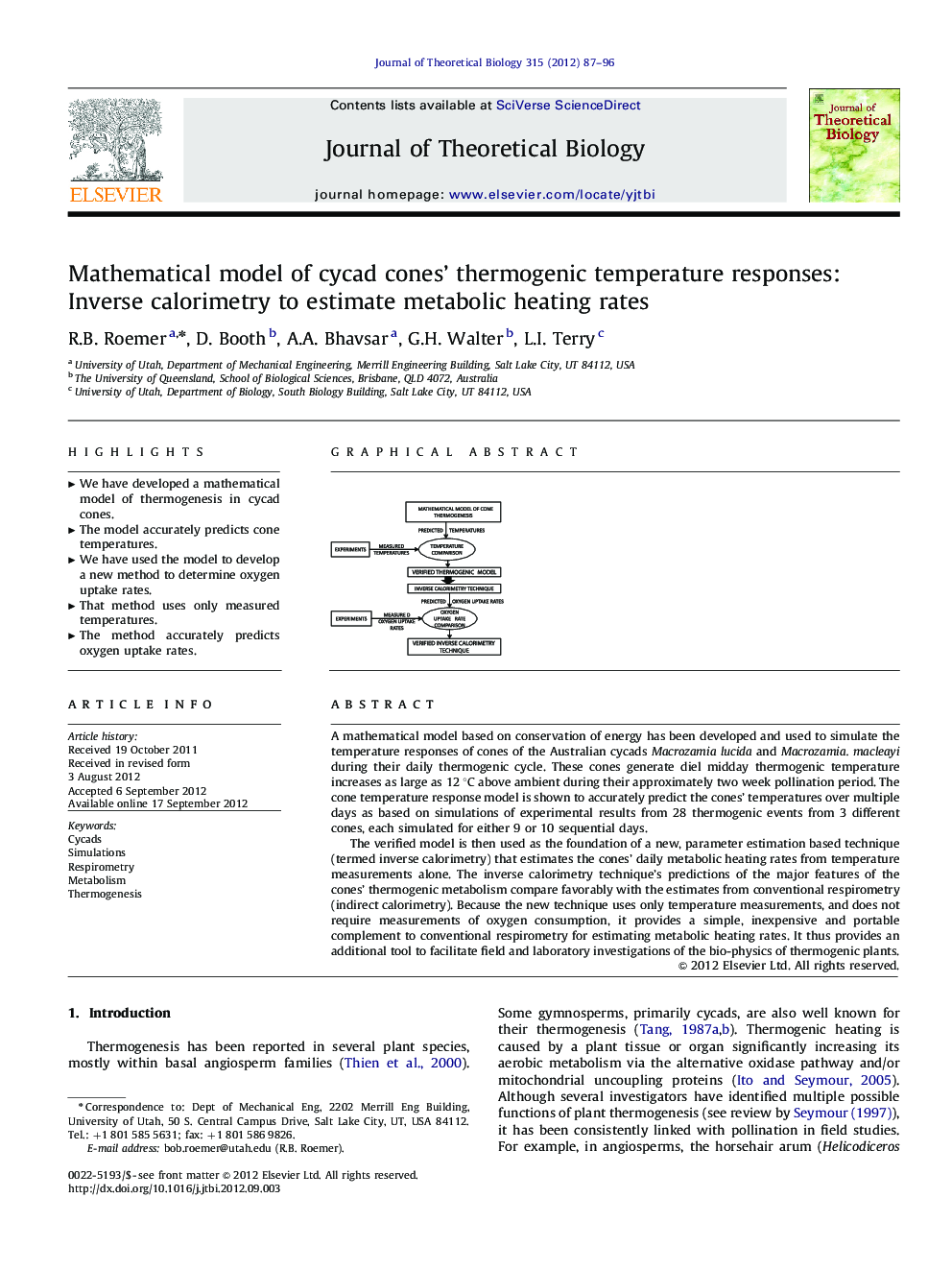| Article ID | Journal | Published Year | Pages | File Type |
|---|---|---|---|---|
| 4496588 | Journal of Theoretical Biology | 2012 | 10 Pages |
A mathematical model based on conservation of energy has been developed and used to simulate the temperature responses of cones of the Australian cycads Macrozamia lucida and Macrozamia. macleayi during their daily thermogenic cycle. These cones generate diel midday thermogenic temperature increases as large as 12 °C above ambient during their approximately two week pollination period. The cone temperature response model is shown to accurately predict the cones’ temperatures over multiple days as based on simulations of experimental results from 28 thermogenic events from 3 different cones, each simulated for either 9 or 10 sequential days.The verified model is then used as the foundation of a new, parameter estimation based technique (termed inverse calorimetry) that estimates the cones’ daily metabolic heating rates from temperature measurements alone. The inverse calorimetry technique’s predictions of the major features of the cones’ thermogenic metabolism compare favorably with the estimates from conventional respirometry (indirect calorimetry). Because the new technique uses only temperature measurements, and does not require measurements of oxygen consumption, it provides a simple, inexpensive and portable complement to conventional respirometry for estimating metabolic heating rates. It thus provides an additional tool to facilitate field and laboratory investigations of the bio-physics of thermogenic plants.
Graphical abstractFigure optionsDownload full-size imageDownload as PowerPoint slideHighlights► We have developed a mathematical model of thermogenesis in cycad cones. ► The model accurately predicts cone temperatures. ► We have used the model to develop a new method to determine oxygen uptake rates. ► That method uses only measured temperatures. ► The method accurately predicts oxygen uptake rates.
